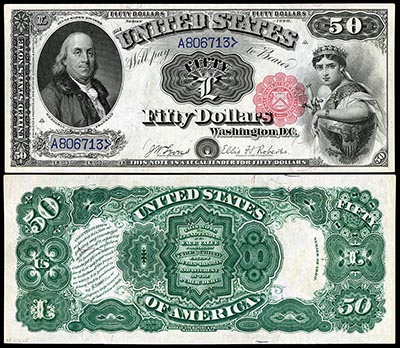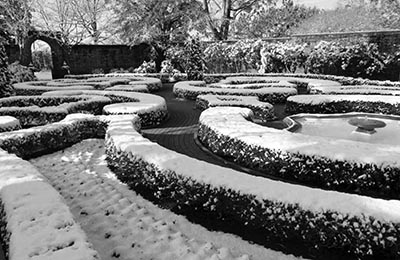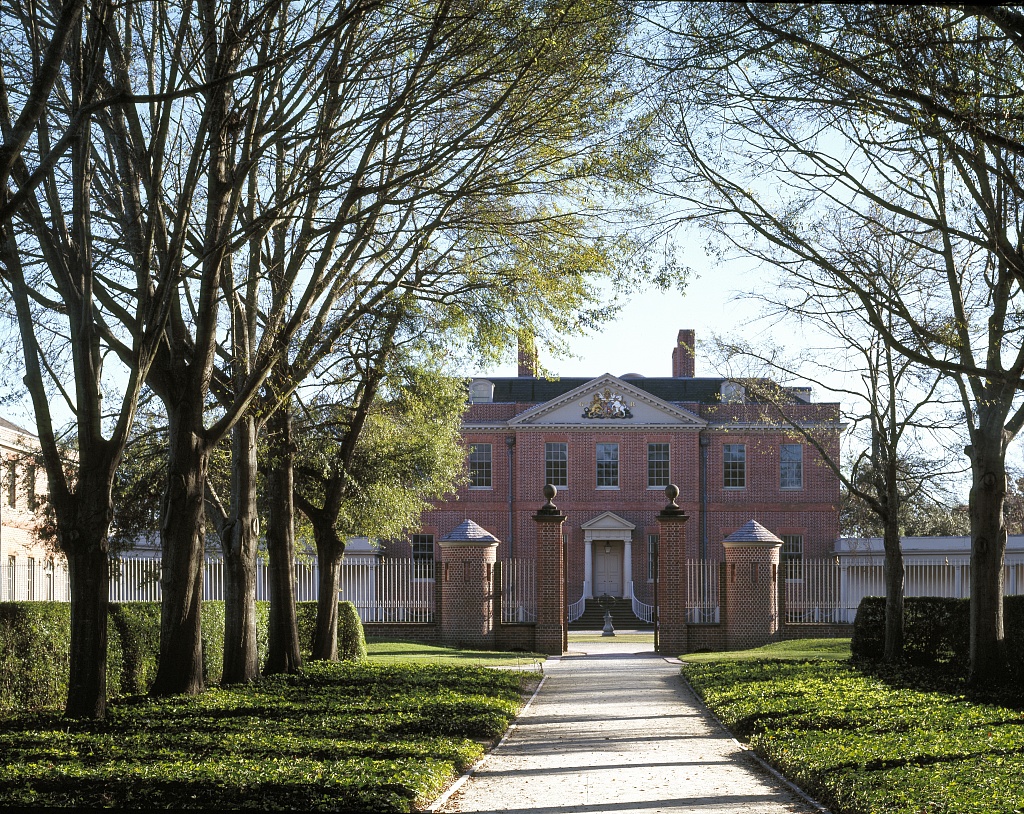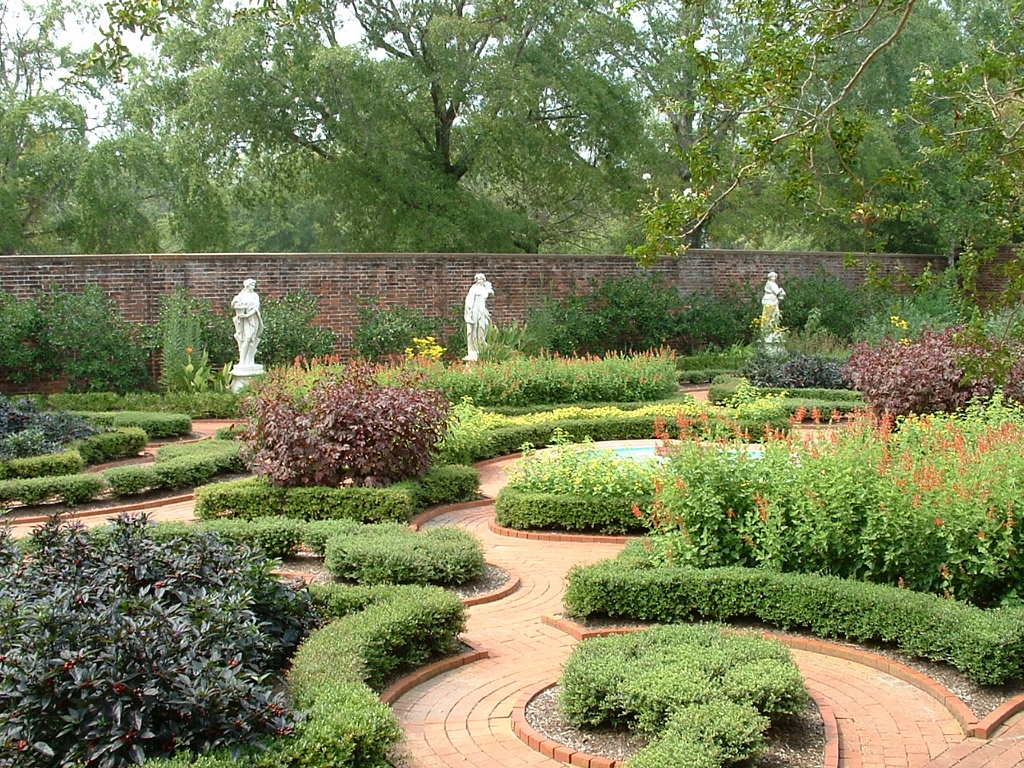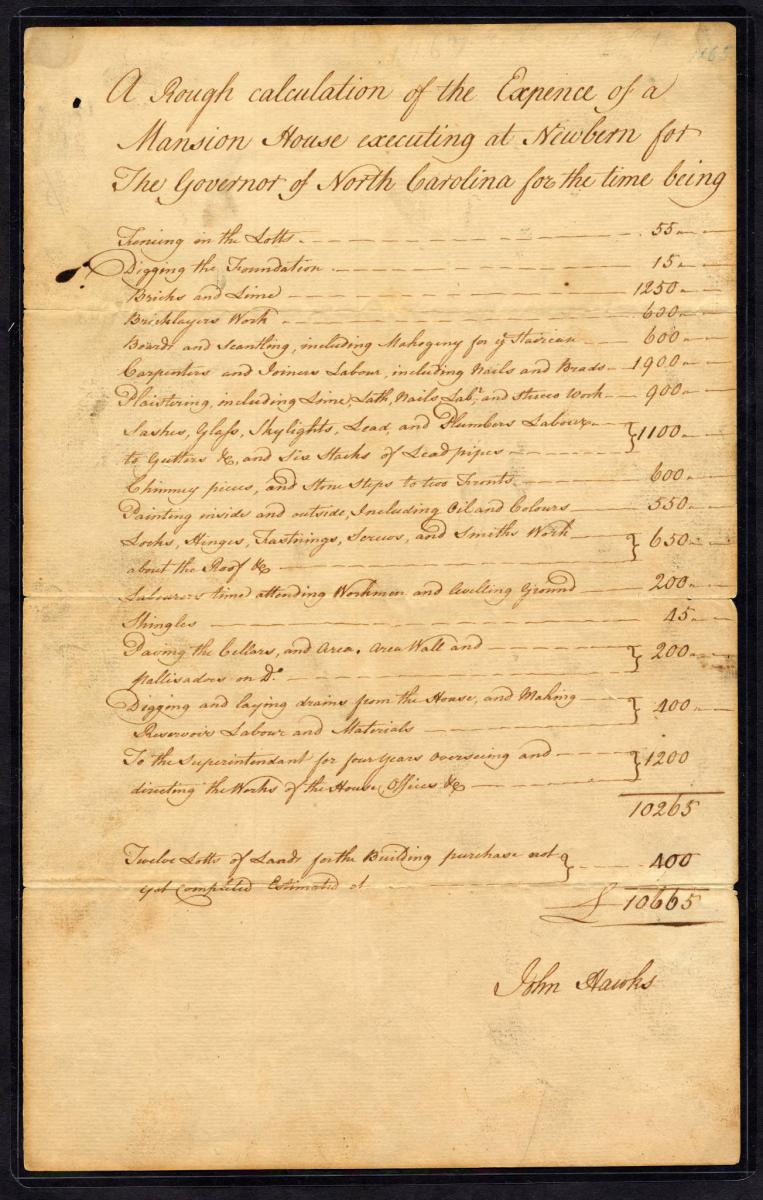William Tryon became governor in 1765. He wanted to build a grand structure to display his power and wealth. Tryon chose English-born John Hawks as the architect. Hawks was the first professionally trained architect to design buildings in North Carolina. He developed the plans for the building known as Tryon Palace. He also oversaw the construction of the mansion and its gardens.
The Tryon Palace had elaborate, or detailed, architecture. This made it the most expensive house in British North America. The palace was located on the banks of the Trent River in New Bern, North Carolina.
The colonial capital had moved around the colony for years. But this changed after Tryon Palace was built in New Bern. New Bern became the colony's first permanent capital with its majestic new building. The impressive structure and its cost sent a strong message about royal colonial power. It affected residents of the colony in particular. Many of them were poor farmers. The cost of the palace was at least 15,000 pounds, or colonial money. Residents of North Carolina had to pay increased taxes to cover the price of the mansion.
Tryon hosted a big celebration in December 1770. He wanted to honor the project's completion. After a certain time, the mansion became known as "Tryon's Palace." This was meant as an insult. Today the site is still known by that name.
The text below is a transcription of how Hawks kept track of costs for building the mansion and the grounds.
A rough calculation of the expense of a mansion house executing at Newbern for the governor of North Carolina for the time being.
| Turning in the Lotts | £55 |
| Digging the Foundation | £15 |
| Bricks and Lime | £1250 |
| Bricklayers Work | £600 |
| Boards and ScantlingSmall pieces of lumber., including Mahogany for ye Staircase | £600 |
| Carpenters and JoinersA joiner was someone who built furniture or did what we would now call finish carpentry -- moldings, trim work, doors and windows, and so on. Labour, including Nails and Brads |
£1900 |
| Plastering, including Lime, LathLaths are thin strips of wood used on walls as a base for plaster., Nails, Labr, and Stucco Work |
£900 |
| Sashes, Glass, Skylights, Lead and Plumbers Labour to Gutter &c, and Six Stacks of Lead pipes |
£1100 |
| Chimney pieces, and Stone Steps to two Fronts | £600 |
| Painting inside and outside, Including Oil and Colours | £550 |
| Locks, Hinges, Fastenings, Screws, and Smiths Work about the Roof &c | £650 |
| Labourers time attending Workmen and levelling Grounds | £200 |
| Shingles | £45 |
| Paving the Cellars, and Area, Area Wall and pallisadoesFences Do An abbreviation for "ditto," or something repeated. |
£200 |
| Digging and laying drains from the House, and Making Reservoir Labour and Materials | £400 |
| To the Superintendant for four years overseeing and directing the Works of the House, Officers &c |
£1200 |
| £10265 | |
| Twelve Lotts of Land for the Building purchase not yet Completed estimated at | £400 |
| £10665 |
Expence of the two Wings or Offices of the said House, Including Collonade, dwarf Wall,
and Pallisadoes to form the Court.
| Digging the Foundations | £20 |
| Brick and Lime | £900 |
| Scantling and Boards | £500 |
| Carpenters and Joiners Labour, including Nails and Brads | £780 |
| Bricklayers Word | £400 |
| Locks, fastenings, and Smiths Work | £190 |
| Glass and painting including the painting of the Shingles on the Roof | £250 |
| Shingles | £55 |
| Two Wells with Pumps Compleat | £40 |
| £3135 | |
| Circular CollonadeA group of columns supporting a tablature or flat roof., with Wall, Columns, paving, Cornice, and Roof &c |
£750 |
| Dwarf Wall, Pallisadoes, piers, Gates &c, to form a Court Yard | £160 |
| £4045 |
Digging and laying drains from the House, and Making Reservoir Labour and Materials £400
To the Superintendant for four years overseeing and directing the Works of the House, Officers &c £1200
£10265
Twelve Lotts of Land for the Building purchase not yet Completed estimated at £400 £10665
Expence of the two Wings or Offices of the said House, Including Collonade, dwarf Wall,
and Pallisadoes to form the Court.
| Digging the Foundations | £20 |
| Brick and Lime | £900 |
| Scantling and Boards | £500 |
| Carpenters and Joiners Labour, including Nails and Brads | £780 |
| Bricklayers Word | £400 |
| Locks, fastenings, and Smiths Work | £190 |
| Glass and painting including the painting of the Shingles on the Roof | £250 |
| Shingles | £55 |
| Two Wells with Pumps Compleat | £40 |
| £3135 | |
| Circular CollonadeA group of columns supporting a tablature or flat roof., with Wall, Columns, paving, Cornice, and Roof &c |
£750 |
| Dwarf Wall, Pallisadoes, piers, Gates &c, to form a Court Yard | £160 |
| £4045 |
